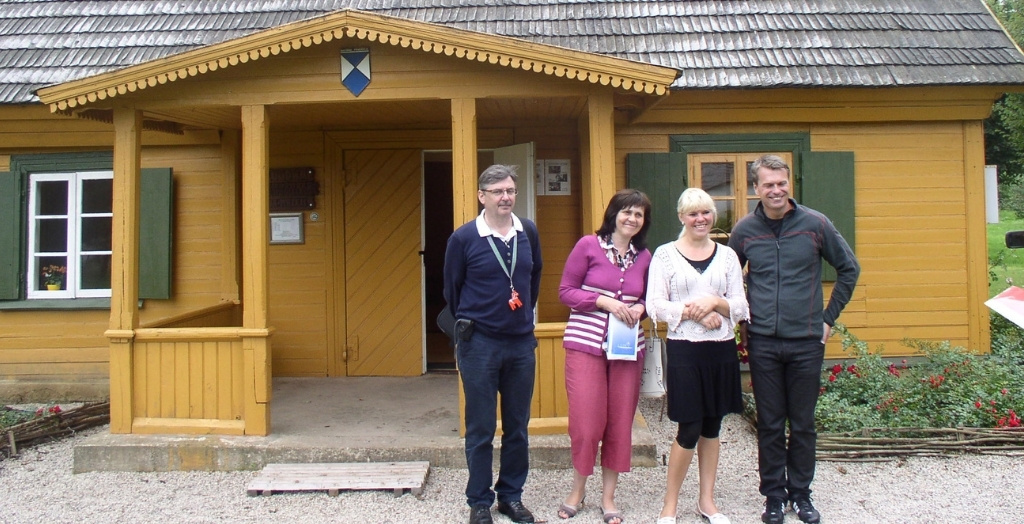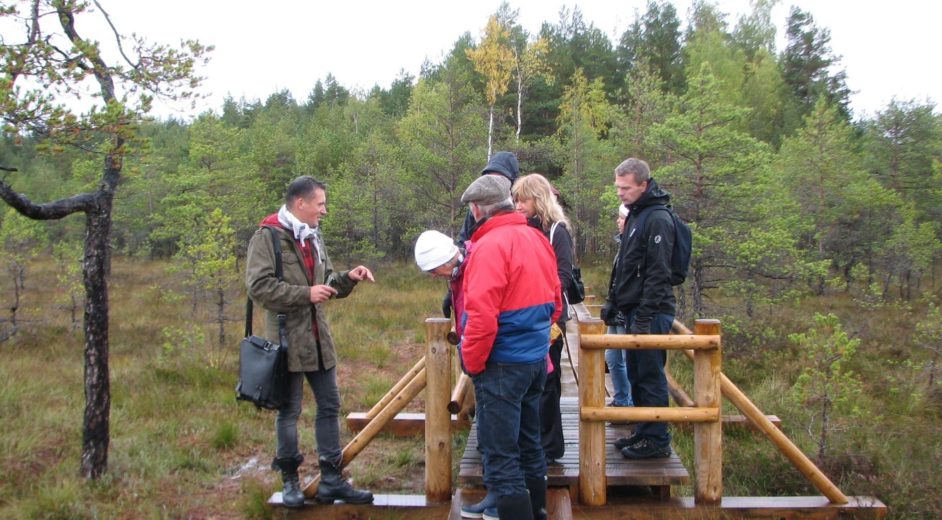How Do We Make the Natural Sciences More Interesting?
Two high schools in Latvia and Sweden cooperated on a Nordplus project to improve the teaching of the natural sciences in both countries. It opened their eyes to what they do – both the good and the bad.
By Joan Rask, journalist
They used Sweden as a worst-case scenario. Because we lose a third of the students in the natural sciences. Thus says Bo Bergström. He is talking about a conference in Riga.
Bo Bergström is Swedish and a high school teacher at the Martin Koch-gymnasiet in the Hedemora municipality, which is a few hour’s drive northwest of Stockholm. He has been a high school teacher since the 80s and followed the ongoing developments in the Swedish education system. He is moved by the situation in Sweden because a large group of Swedish students are doing very poorly in the natural sciences.
“It is true – parts of it are true. Our teaching doesn’t work for everyone,” he says.
But it does so in Latvia when it comes to the natural sciences such as mathematics, physics, biology and chemistry. Here, they know the fundamentals and have been able to provide the students with the basic skills.
“The general level of teaching and level among the teachers are comparable between Latvia and Sweden,” says Bo Bergström.
Hardworking students
The conference did not scare Bo Bergström. On the contrary, he wanted to gain more knowledge in the area. Therefore, he has participated in the Nordplus project “No Child Left Behind: Making Science Look Simple”. Here, the Martin Koch-gymnasiet cooperated with the Latvian Bauska State Gymnasium, which is south of Riga close to the Lithuanian border. Maruta Lagzdina is deputy head here. During the project, she was attentive to those areas which could be improved in Latvia.
“The involved teachers expanded their knowledge and research skills – not only in class – they also obtained experience in using university based research,” says Maruta Lagzdina.
To work with projects of longer duration is unusual in Latvia. Hence, larger projects requiring immersions are harder to execute. Here, a lesson is 40 minutes and is normally mandatory. Activities outside of the classroom in nature are therefore always limited by time, and overnight trips are never part of the timetable.
“The teachers at Bauska State Gymasium were impressed by Swedish educators’ professionalism, enthusiasm and hard work. They also valued the students’ active engagement and interest in their studies,” says Maruta Lagzdina.
Bo Bergström happily recall a three-day expedition to the Swedish west coast in which two Latvian teachers took part.
“They were very impressed with how well we made the students collaborate – and that the young students voluntarily worked with their projects the whole day, until almost midnight,” says Bo Bergström.
He smiles and laughs a bit.
“Fundamentally, I don’t think Sweden is headed in the wrong direction,” he says.
That is because he knows what the Swedish teachers are good at and where he thinks the problems lie.
Basic skills are boring
“In Sweden, we skip the basic skills and go straight to the project work. It is here that many students are lost,” Bo Bergström says.
The visit to Bauska made it clear to him that it is the basic skills in the natural sciences which are lacking in Sweden. In Latvia, the focus is much more on the basic skills and more time is concretely devoted to that part of the work. The teachers do not have to produce their own teaching materials - it is produced by the state.
“If you are clever and love the natural sciences then you will become better in Sweden than Latvia, but if you belong to the average group or the weakest academically, then you will become better in Latvia,” says Bo Bergström.
In fact, the realisation came to the participants that Sweden has both the best and the less skilled students while Latvia is far better at raising everyone’s academic level.
“We could use some help from Latvia to produce better exercises and problem sets,” Bo Bergström says.
He simultaneously adds that Swedish teachers and students, in turn, score higher in motivation and creativity.
“In Sweden, we know our students and have great relations to them, and us teachers have far greater opportunities with regard to planning the teaching in accordance with the needs we see – and what we prefer. It is very motivating,” he says.
Research and development
The project is supposed to examine how motivation among teachers could possibly be improved because it is a common issue that negative students, who only sullenly participate in class, decrease the teachers’ motivation. A vicious circle resulting in even more unmotivated students. A. Baranova is a biology teacher at Bauska State Gymnasium, and she wants to be able to better motivate her students.
“Practical workshops are very important in fostering students’ motivation when learning biology,” she says.
Maruta Lagzdina highlights the fact that all teachers from Latvia agree that the project has given them both an academic boost and a “fresh start” to try something new.
“In my opinion, the main values of the project were the opportunity to gain new experience and knowledge and to discuss issues connected to teaching and methods of motivating every child in studying the natural sciences,” Maruta Lagzdina says.
DNA, data and friendships
The natural sciences generally have a hard time attracting students. Both the high school in Sweden and the one in Latvia hope that students and teachers henceforth will be more motivated. The project work has in itself been a big motivator for the project participants.
“I have made friends for life, learned a lot about my subject and also about Latvia, its culture and the society today,” Bo Bergström says.
He has the experience of teaching in Latvia as well.
“The biggest problem for the project was the language. The Latvian natural sciences teachers needed translators at all times. They cannot teach my students, but I can teach theirs,” he says.
Still, the Latvian participants point out that their English language proficiency has improved. Both this and the academic outcomes have had a great influence, according to Maruta Lagzdina.
“The best parts were the new pedagogical experiences, the realisation of different ideas and the opportunity to see new technologies – for example the testing of DNA,” says the Latvian deputy head.
Bo Bergström and colleagues can make time for immersion and long processes, as for example with the DNA tests.
“It is extremely valuable with longer processes, where I can take the students from A to B. But the consequence is that I lack the time for basic skills,” he says.
Some of the ready-made Latvian teaching material with prefabricated exercises and tasks is something Bo Bergström dreams about supplementing his own teaching with – because that would make the students less vulnerable and, at the same time, allow him more time to teach the basic skills.
“Teachers who are not that good at teaching lose the students. Here, we don’t succeed in Sweden. With us, equality is dependent on what teacher you have,” says Bo Bergström.

Read the article in Danish: Hvordan bliver naturvidenskabelige fag interessante?
Coordinating institution
- Zinket - Bauska State gymnasium (LV-BVĢ)
Partner institutions
- SE-Martin Koch-gymnasium (SE)
Program
- Nordplus Junior
